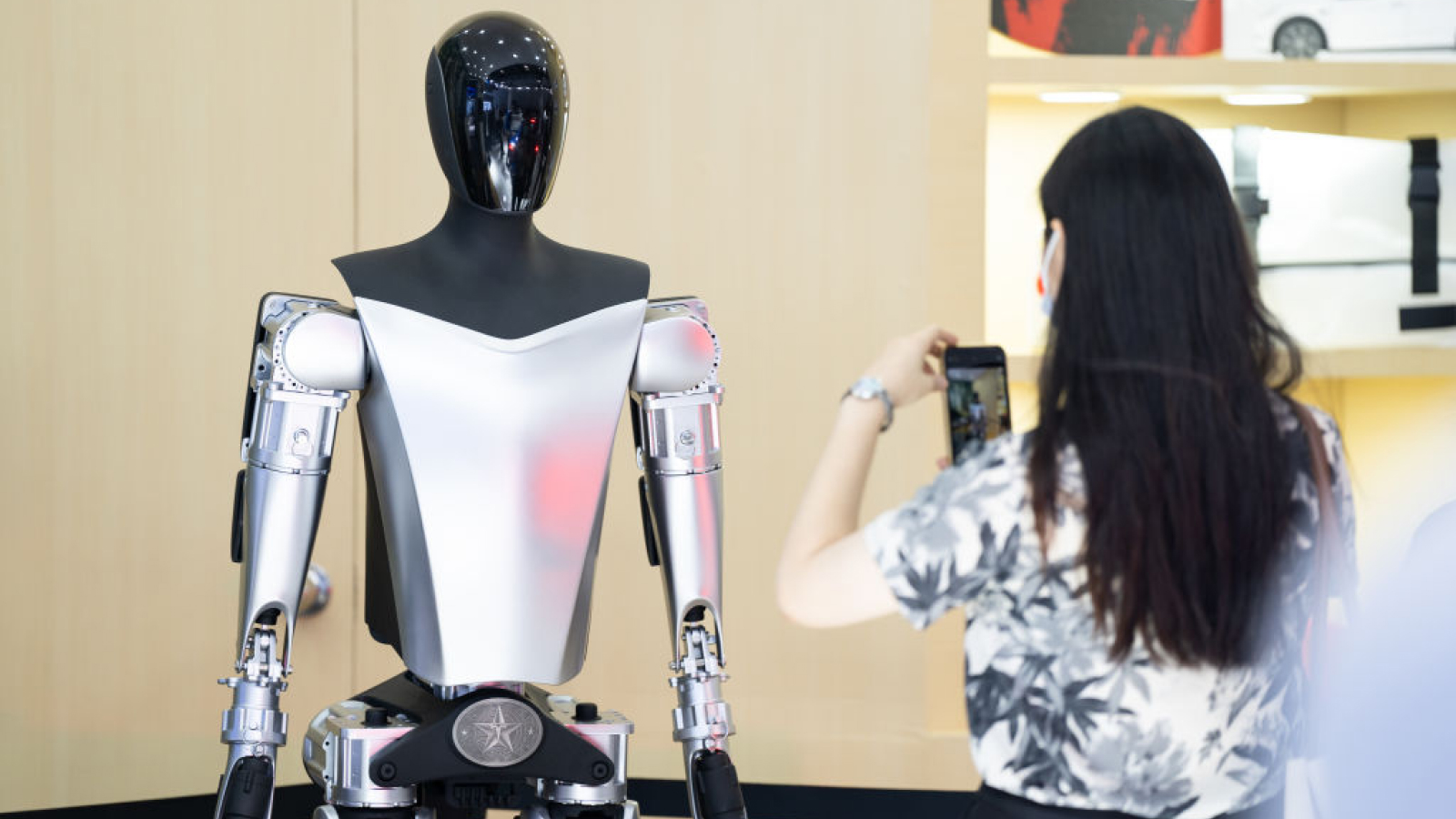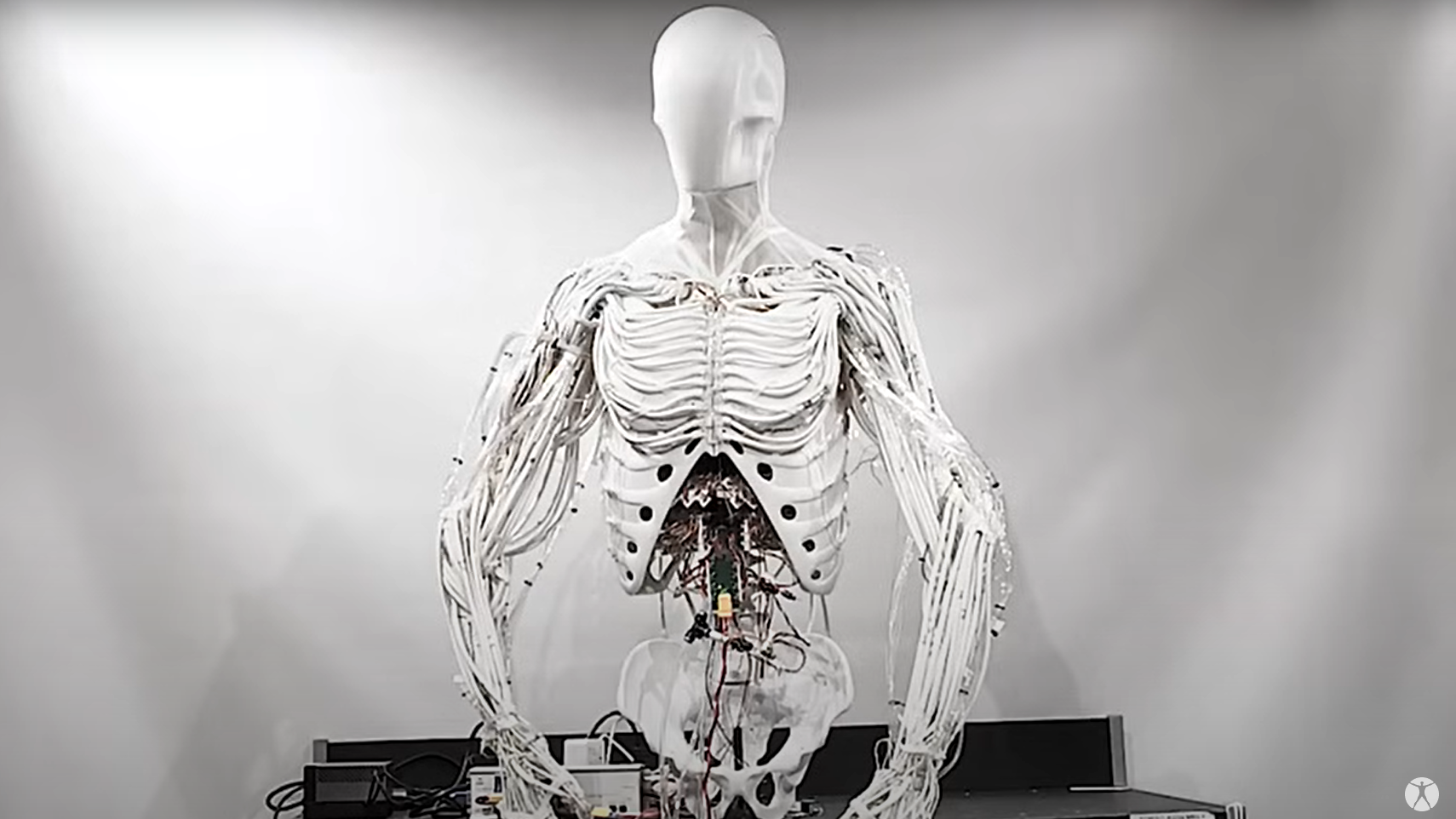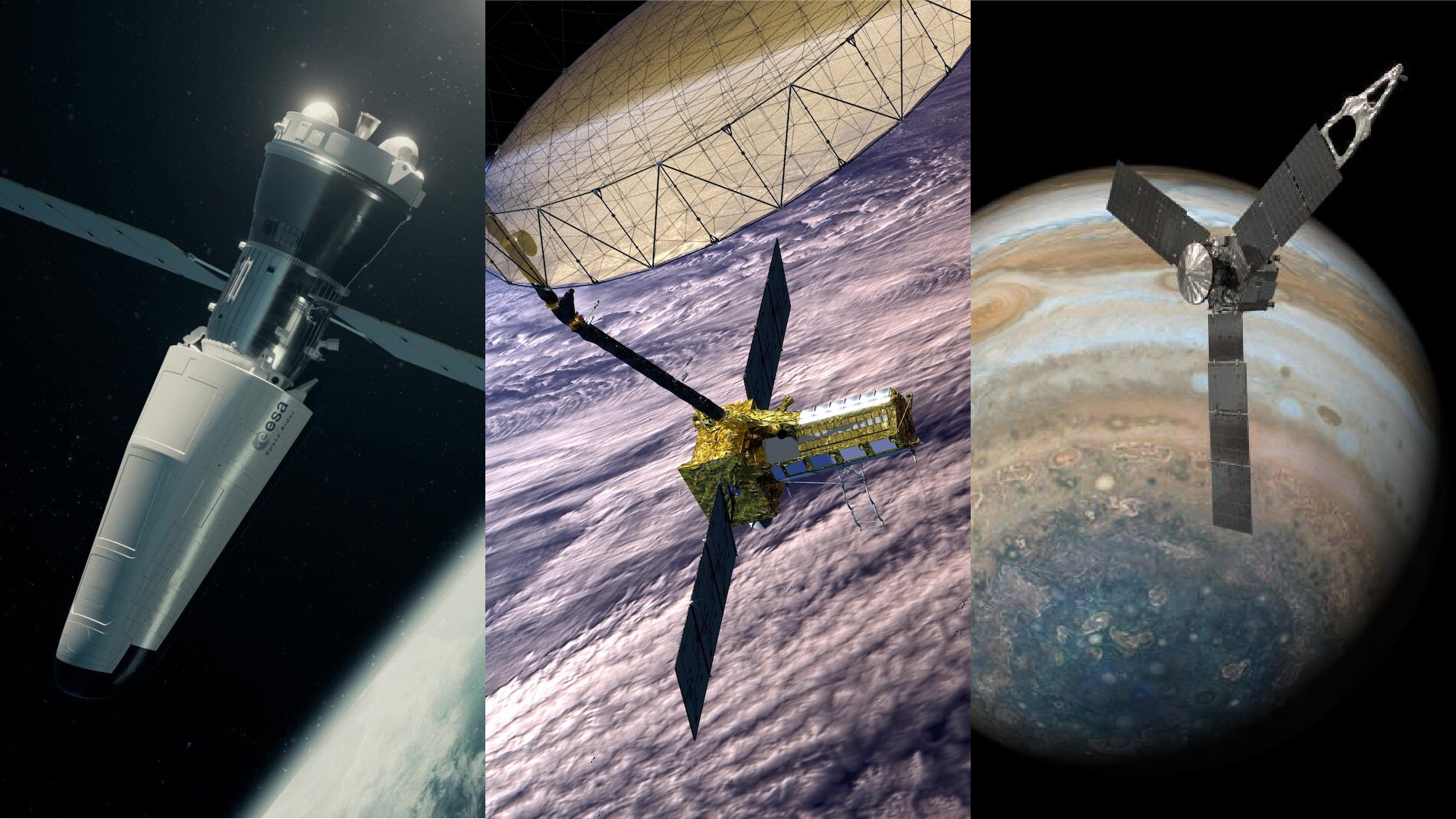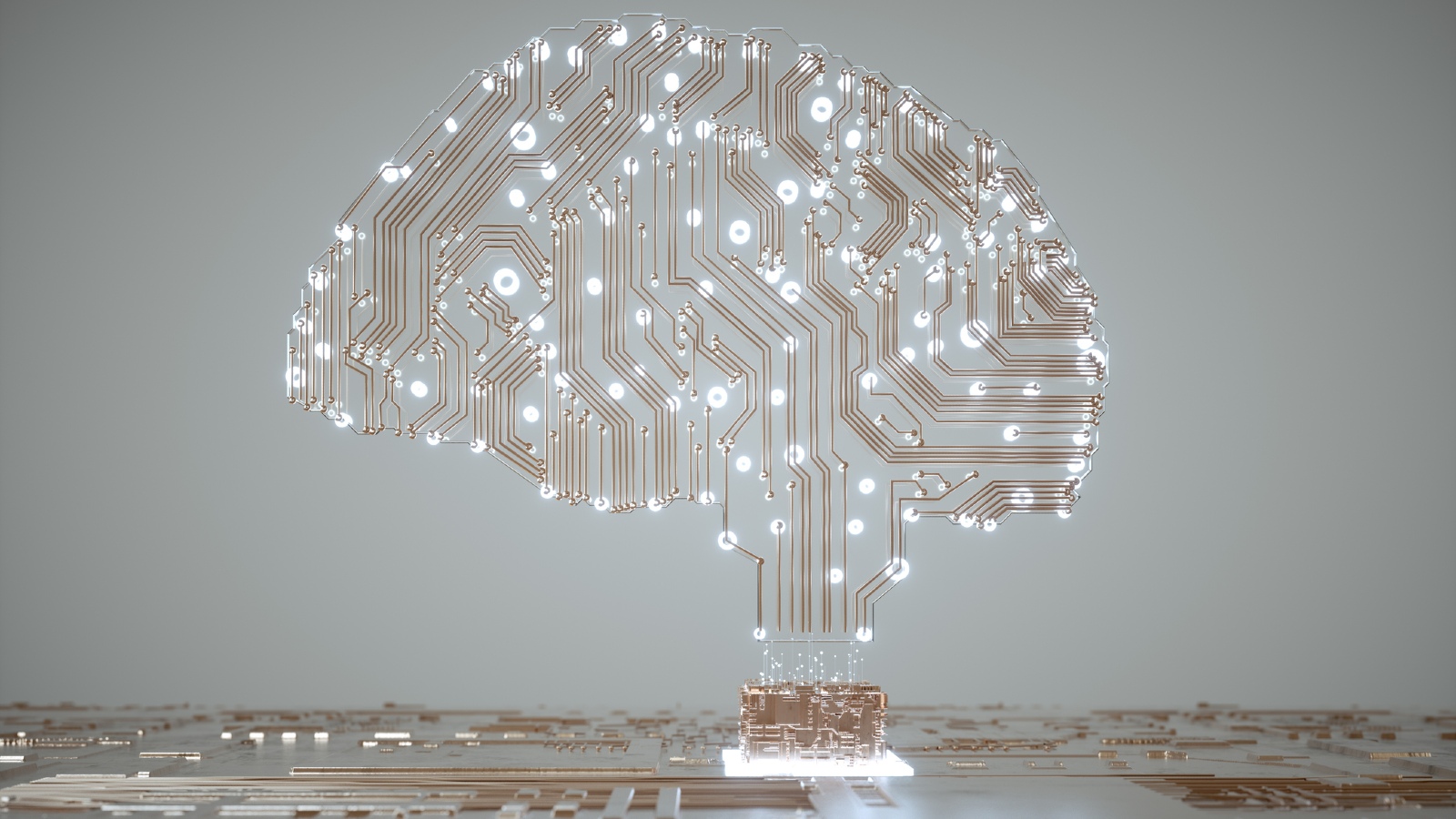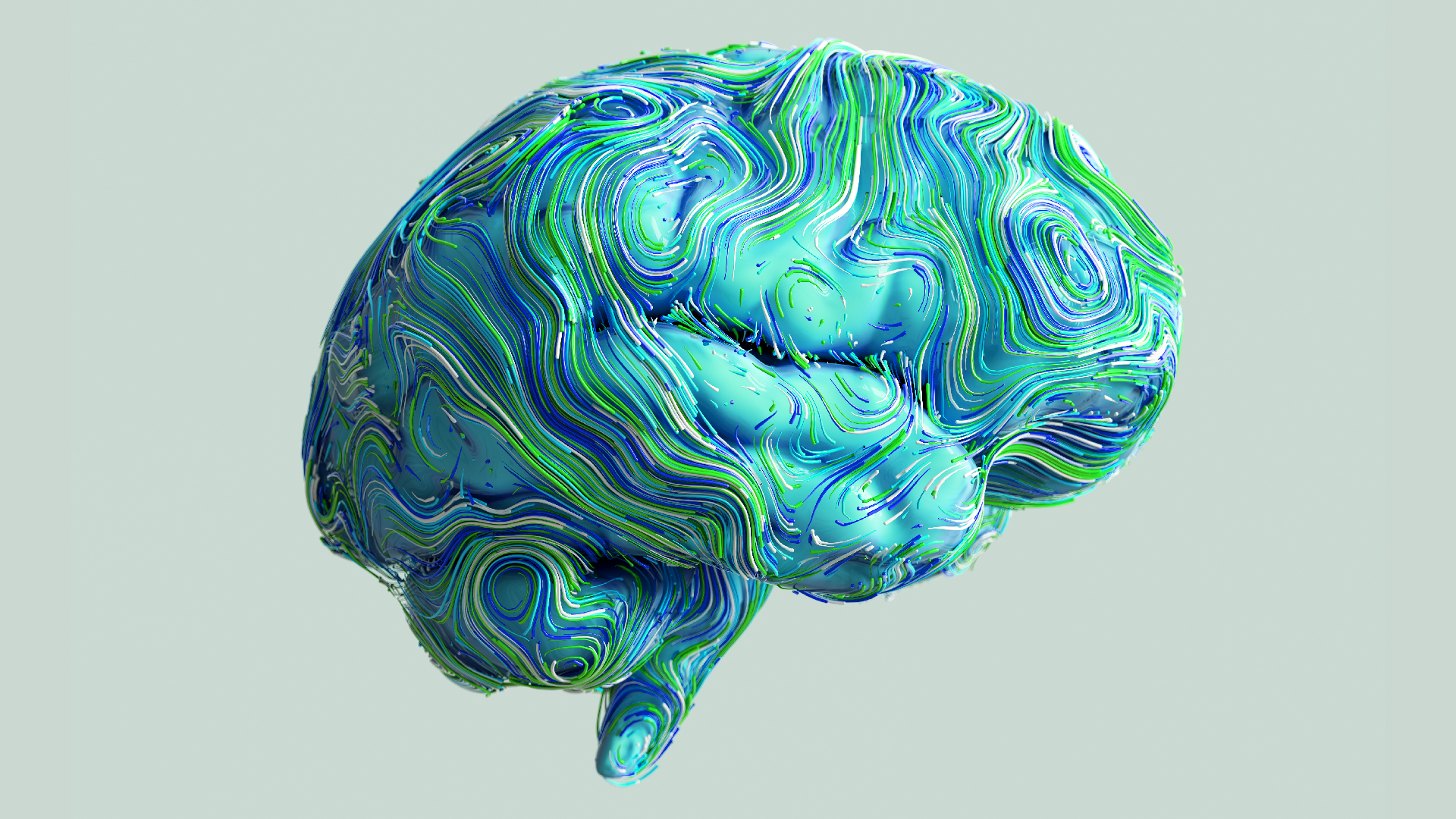How to tell you're in love with someone, according to science
Your brain and behaviors tell you you're in love in a variety of ways. Here's 14 signs you've been struck by Cupid.

- 1. Unique brain activity
- 2. Special meaning
- 3. Focus on the positive
- 4. Emotional instability
- 5. Intensifying attraction
- 6. Intrusive thinking
- 7. Emotional dependency
- 8. Planning a future
- 9. Feelings of empathy
- 10. Aligning interests
- 11. Craving an emotional union
- 12. Out-of-control feelings
- 13. Loss of the spark
- 14. Hypomania
Is there a special someone you just can't get out of your head? Do you find yourself daydreaming about them when you should be working or studying? Does it feel different this time?
Well, you might be in love — but how can you be sure? Interestingly, scientists have made a lot of progress in understanding what love is and have started to pin down what it means to "fall in love." They have even pinpointed what love looks like in the brain and shown that the related cell activity looks very different from that tied to friendship or lust.
Studies led by Helen Fisher, a senior research fellow at the Kinsey Institute at Indiana University, and other researchers have identified both psychological and physical characteristics often associated with being in love.
Several signs can indicate a person is in love, scientifically speaking. And though studies have historically focused on monogamous, heterosexual relationships, a small 2010 study published in the journal PLOS One suggested that romantic love is indistinguishable in the brains of straight and homosexual people.
Related: Why does heartbreak hurt so much? Science has the answer
Unique brain activity
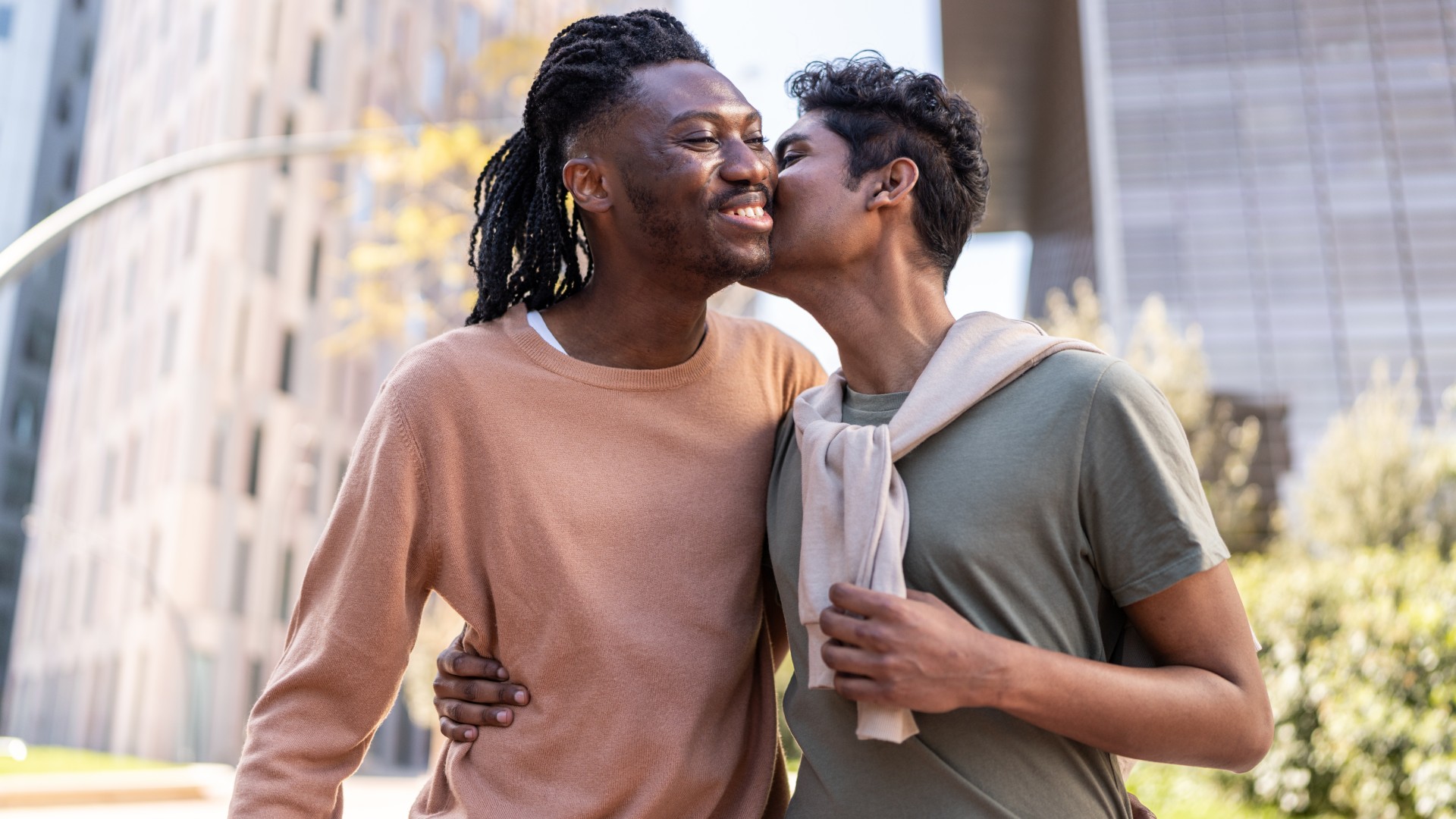
Thinking about your romantic partner can trigger brain activity that looks very different from other forms of love, a study suggests.
In 2024, Finnish researchers asked 55 parents who were in committed, loving relationships to listen to recordings of scenarios involving love for six things: romantic partners, children, friends, strangers, pets and nature. They then asked the participants to imagine themselves in these situations while recording their brain activity using functional magnetic resonance imaging (fMRI). As a point of comparison, several scenarios involved not love but mundane, everyday situations, such as looking at an unremarkable view from a bus window.
Thinking about love for others generated higher levels of activity in areas of the participants' brains related to social cognition than did love for pets or nature, the team found. These brain regions included the temporoparietal junction at the sides of the back of the head, as well as structures along the midline of the forehead. Overall, the most intense brain activity was induced by thoughts of the participants' children, closely followed by those about a romantic partner.
Special meaning

When you're in love, you begin to think your beloved is special. Fisher told Wired in 2022 that the first thing to happen when you fall in love is that the person takes on special meaning, contrary to a platonic — meaning nonromantic — relationship. Everything about the person you're in love with becomes special, such as their car, house or taste in music.
"When you're madly in love with somebody in a romantic attraction, you are obsessed, and in a platonic attraction, you don't think about them night and day," Fisher said.
Focus on the positive

People who are in love tend to idealize their partners, focusing on the positive qualities of their beloved while overlooking their partner's negative traits. It's not clear whether this is necessarily a good thing in long-term partnerships. A 2011 study published in the Journal of Family Theory & Review looked at studies about idealization in relationships and couldn't determine whether it was a good predictor of marital satisfaction.
Fisher's research has suggested that those who are in love also focus on trivial events and objects that remind them of their loved one. She found that most men and women reported recalling trivial things that their partners said and did, and they would also replay these moments in their heads.
This focused attention is also thought to result from elevated levels of the chemical messenger dopamine in the brain and spinal cord, as well as a spike in norepinephrine, a chemical associated with increased memory in the presence of new stimuli, particularly emotionally arousing stimuli.
Emotional instability

As is well known, falling in love can lead to wild swings in mood. When extreme, these swings can somewhat parallel the behavior of people with substance use disorders, in that the need to seek out and be with the person can prompt harmful behaviors, according to a 2017 article in the journal Philosophy, Psychiatry, & Psychology.
Fisher has argued that romantic love should be considered akin to an addiction — but that "love addiction" is positive when the love is reciprocated, nontoxic and appropriate, and negative when the opposite is true. "Symptoms" of love addiction include cravings, withdrawals and relapses, similar to drug dependence, she argues. That said, not everyone agrees with comparing love to addiction, even in a metaphorical sense, as doing so can downplay the seriousness of substance use disorders.
Intensifying attraction

Going through adversity in a relationship can intensify romantic attraction, according to Fisher's research. For example, separated lovers may experience anxiety if they aren't able to see each other, and they show elevated dopamine levels when reunited. That's because when a reward of dopamine in the brain is delayed — in this case, through separation — the dopamine-producing neurons in the so-called midbrain become more productive. In other words, absence really can make the heart grow fonder.
Related: Brain signature of desire uncovered in lovesick rodents, and it may be in people, too
Intrusive thinking
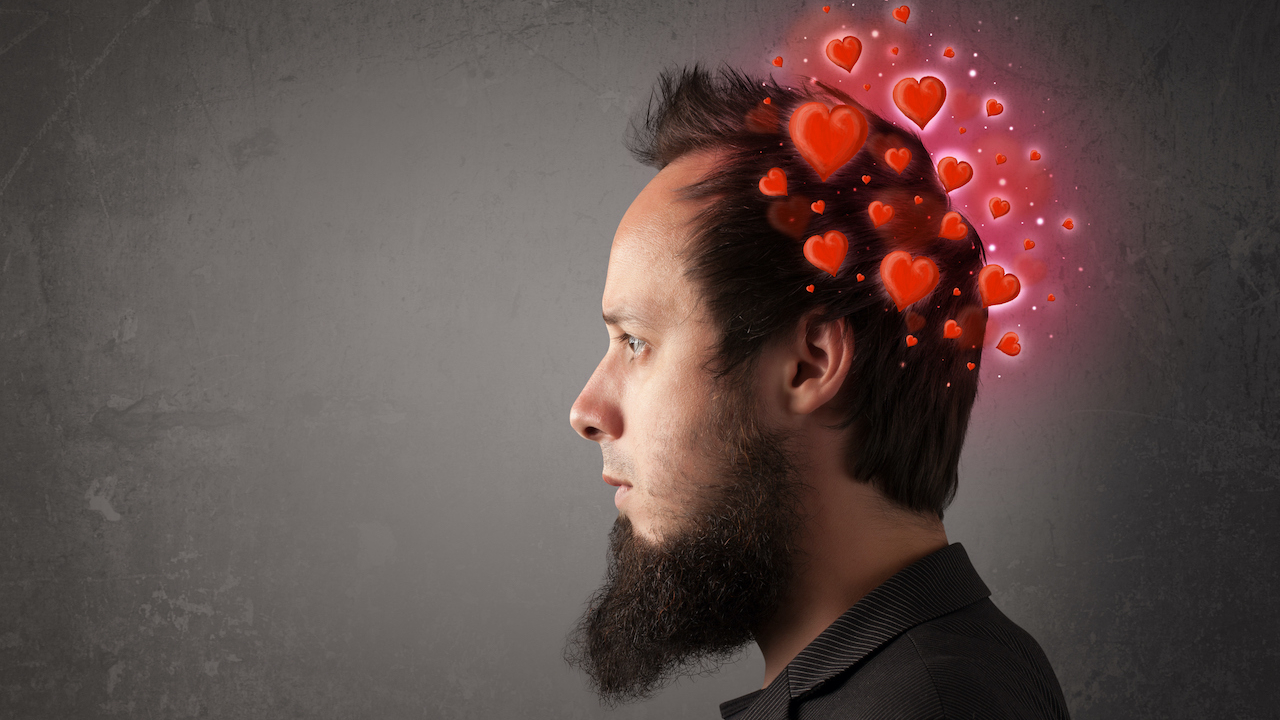
People who are in love can spend a lot of time thinking about their partners. One small study of 10 women and seven men who reported having recently fallen madly in love reported spending more than 85% of their waking hours musing over their beloved, according to a 2016 study published in the journal Frontiers in Psychology.
Being in love also prevents people from focusing on other information, according to a study published in 2013 in the journal Motivation and Emotion. The researchers found that passionate love among students correlated with decreased efficiency and worse performance on tasks provided by the researchers.
Emotional dependency
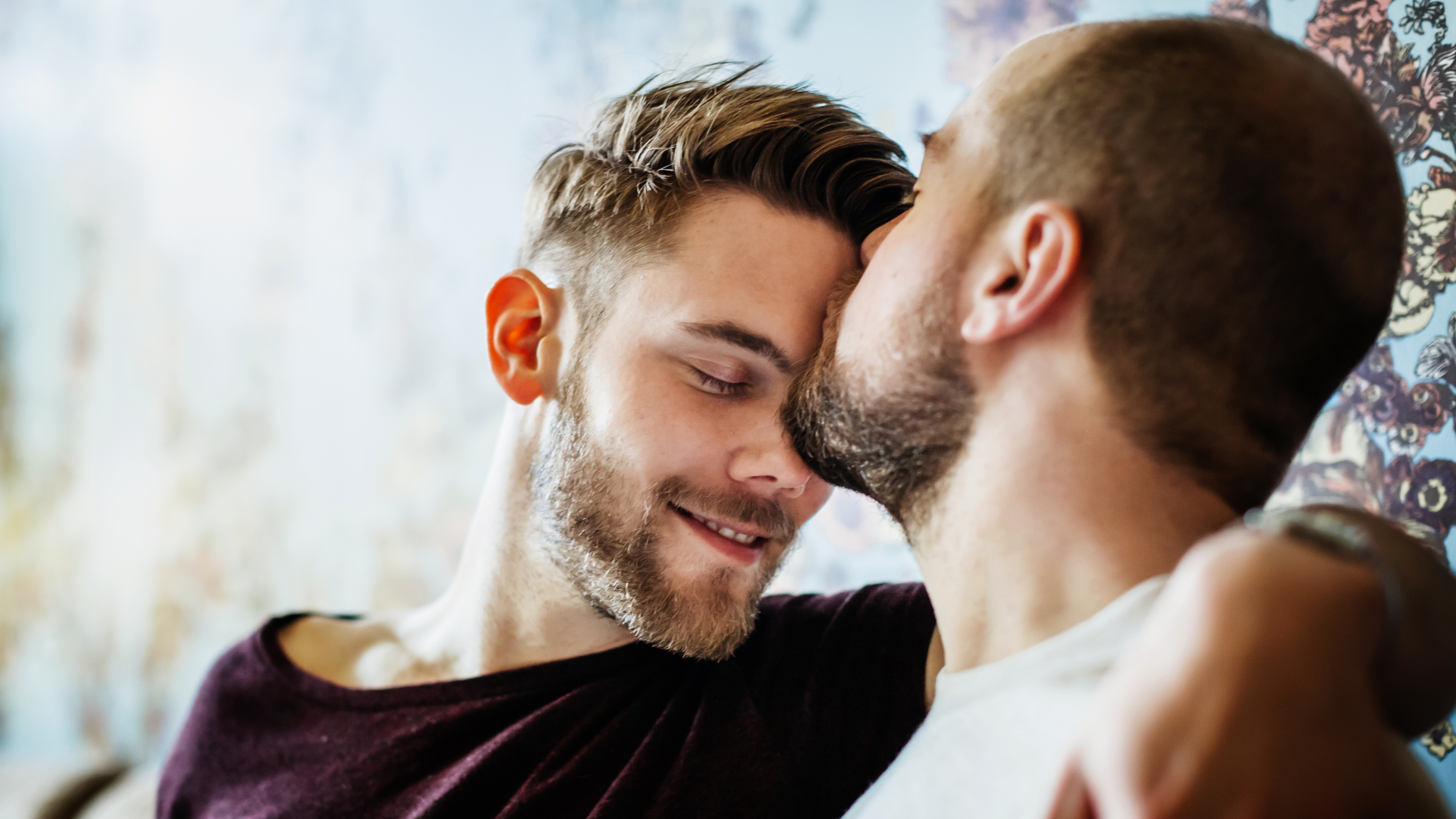
People in love regularly exhibit signs of emotional dependency, including possessiveness, jealousy and fear of rejection. For instance, Fisher and her colleagues looked at the brains of individuals viewing photos of someone they were still in love with despite being rejected by that person.
The study involved only a small sample of rejectees, but brain scans taken using fMRI showed activation in several brain areas, including forebrain areas such as the cingulate gyrus, that have been shown to play a role in cravings in people addicted to cocaine. Broadly speaking, the brain's reward system lights up in anticipation of a variety of rewarding stimuli — from food to social interactions to sex — so this overlap isn't necessarily surprising.
"Activation of areas involved in cocaine addiction may help explain the obsessive behaviors associated with rejection in love," the researchers wrote in 2010 in the Journal of Neurophysiology.
Planning a future

Longing for an emotional union with a beloved, seeking out ways to get closer, and daydreaming about a future together are also signs of love. According to an article in The Harvard Gazette, when the brain's serotonin levels begin to return to normal levels after spiking at the start of a relationship, the hormone and neurotransmitter oxytocin increases in the body. This chemical messenger is associated with more mature relationships and helps cement pairings, research suggests.
Lucy Brown, a neuroscientist at the Albert Einstein College of Medicine in New York, told Live Science in 2011 that the drive to be with another person is sort of like our drive toward water and other things we need to survive.
"Functional MRI studies show that primitive neural systems underlying drive, reward recognition and euphoria are active in almost everyone when they look at the face of their beloved and think loving thoughts," Brown said. "This puts romantic love in the company of survival systems, like those that make us hungry or thirsty.
"I think of romantic love as part of the human reproductive strategy," she added. "It helps us form pair-bonds, which help us survive. We were built to experience the magic of love and to be driven toward another."
Feelings of empathy
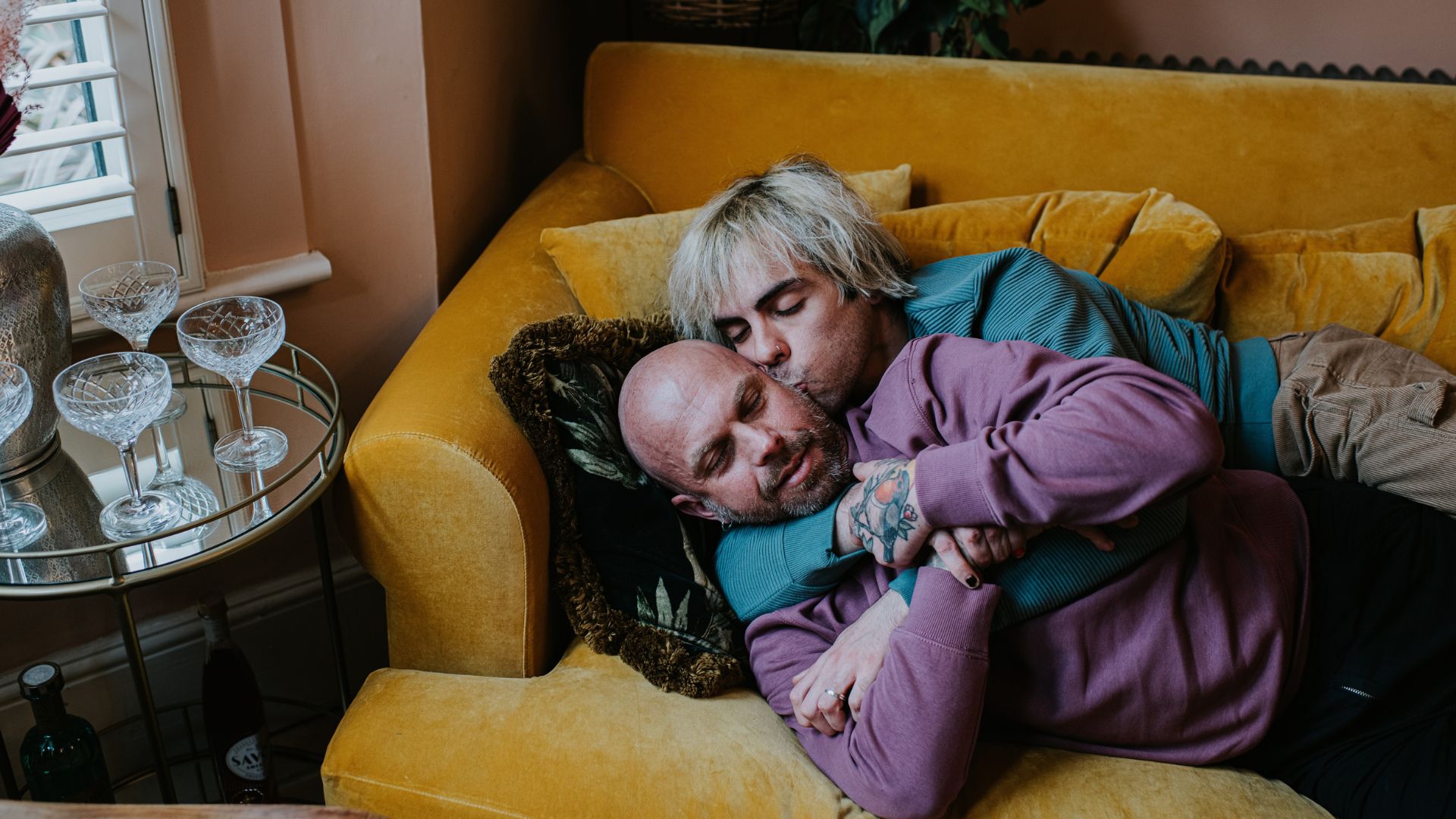
People who are in love have a great deal of empathy for their partner, feeling the other person's pain as their own and being prepared to sacrifice anything for the other person, according to Fisher's research.
That empathy can benefit the relationship. For example, empathy can motivate supportive behaviors that help alleviate a partner's suffering during difficult times, as well as help a partner celebrate their successes, according to a 2017 study published in the Journal of Social and Personal Relationships.
Related: Humans can 'smell' each other's emotions — but we don't know how
Aligning interests

Falling in love can result in someone reordering their daily priorities to align with those of their partner.
While some people may attempt to be more like a loved one, another of Fisher's studies, presented in 2013 at the "Being Human" conference, found that people can be attracted to their opposites, personality-wise.
For instance, her research found that people who were highly analytical, competitive and emotionally contained were often drawn to mates with personalities who tended to be "empathetic, nurturing, trusting and prosocial, and introspective, seeking meaning and identity," Fisher said at the time.
Still, most evidence shows that people aren't really attracted to opposites in the context of relationships. Rather, like attracts like. And data suggest those who perceive themselves to be more like their partners are likelier to stay together, and be happier, than people who see themselves as very different from their partners.
Craving an emotional union

While research suggests that the desire for sexual union is important to many people in love, it's not the be-all and end-all. In fact, Fisher's 2002 study published in the journal Archives of Sexual Behavior found that 64% of people in love — the same percentage for men and women — disagreed with the statement "Sex is the most important part of my relationship with [my partner]."
The longing for an emotional union is often reported as the most important factor in relationships and appears to supersede sex.
Out-of-control feelings

Fisher and her colleagues found that individuals who report being in love commonly say their passion is involuntary and uncontrollable. For her book "Love and Limerence: The Experience of Being in Love" (Scarborough House, 1998), psychologist Dorothy Tennov asked 400 men and women in Connecticut to respond to 200 statements on romantic love. Many participants expressed feelings of helplessness, saying their obsession was irrational and involuntary.
Loss of the spark

The initial state of being in love doesn't always last. It may withers and die or evolve into a long-term relationship that psychologists call "attachment." When this happens, your cortisol and serotonin levels return to normal, and the negative, stressful aspects of love, such as anxiety, tend to go away, according to Harvard Medical School.
If there are physical or social barriers inhibiting partners from seeing one another regularly — for example, if the relationship is long-distance — then the intense romantic love phase generally lasts longer than it would otherwise.
Fisher and colleagues published a 2012 study in the journal Social Cognitive and Affective Neuroscience that found that, for some individuals, the activation in reward pathways in the brain seen in new love may even be sustained in long-term relationships coupled with attachment. In other words, you can be madly in love with someone for decades, if you're lucky.
Hypomania

Several studies have found that the early stages of intense romantic love are associated with hypomania, a period of elevated mood levels where people can also experience things like increased energy and confidence, as well as increased irritability and disinhibition, all while sleeping less. (This is not to be confused with hypermania, which ramps this up to a higher intensity and has additional effects.)
A 2007 study published in the Journal of Adolescent Health found that young lovers scored higher on a scale of hypomania, with increased positive-mood states in the mornings and evenings, compared with those who were uncoupled. A 2015 study in the International Journal of Psychiatry in Clinical Practice suggested romantic love was not entirely joyful, though, and also came with the darker sides of hypomania, including poor sleep quality.
Ever wonder why some people build muscle more easily than others or why freckles come out in the sun? Send us your questions about how the human body works to community@livescience.com with the subject line "Health Desk Q," and you may see your question answered on the website!
Sign up for the Live Science daily newsletter now
Get the world’s most fascinating discoveries delivered straight to your inbox.
Robin Nixon is a former staff writer for Live Science. Robin graduated from Columbia University with a BA in Neuroscience and Behavior and pursued a PhD in Neural Science from New York University before shifting gears to travel and write. She worked in Indonesia, Cambodia, Jordan, Iraq and Sudan, for companies doing development work before returning to the U.S. and taking journalism classes at Harvard. She worked as a health and science journalist covering breakthroughs in neuroscience, medicine, and psychology for the lay public, and is the author of "Allergy-Free Kids; The Science-based Approach To Preventing Food Allergies," (Harper Collins, 2017). She will attend the Yale Writer’s Workshop in summer 2023.
- Emily CookeStaff Writer
- Yasmine S. Ali, MDMD, MSCI, FACC, FACP


